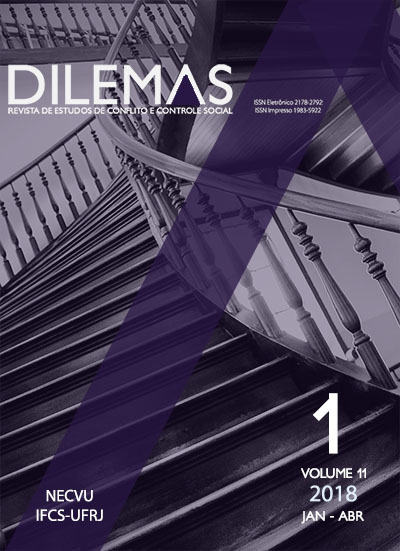As relações de reciprocidade e dívidas morais entre o presídio e a rua: A expansão e transnacionalização do Primeiro Comando da Capital (PCC) na fronteira Brasil-Bolívia
Palabras clave:
fronteira, tráfico de drogas, transnacionalização, Primeiro Comando da Capital, CorumbáResumen
O presente artigo busca compreender como se deu a expansão e a transnacionalização do Primeiro Comando da Capital (PCC) na fronteira Brasil-Bolívia, tendo como base geográfica de análise a região de Corumbá, no Brasil, e Puerto Suarez, na Bolívia. A metodologia de pesquisa utilizada foi a etnografia, o que possibilitou entender os fatos a partir dos atores sociais envolvidos. As mudanças ocasionadas com a entrada progressiva do PCC nos presídios da região vêm impactando a dinâmica local de venda de drogas, baseada nas relações pessoais e de vizinhança, inserindo uma nova lógica de lealdade ao PCC e reordenando o tráfico de drogas para além da fronteira.
Descargas
Descargas
Publicado
Número
Sección
Licencia
Al enviar un texto, los autores conservan los derechos de autor y conceden DILEMAS - Revista de Estudos de Conflito e Controle Social el derecho de primera publicación, estando la obra simultáneamente licenciada bajo la Licencia Creative Commons tipo atribución BY (CC-BY), que permite compartir la obra con reconocimiento de autoría y publicación inicial en esta revista.

